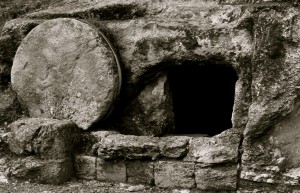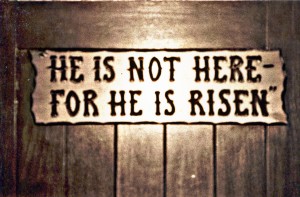
If a brother dares speak with or meet with the excommunicated brother, without the express permission of the abbot, he shall undergo the same penalty of excommunication.
Why can’t I speak with them?
A short chapter this week on the role of authority; a topic that is increasingly contentious in our culture. I have written on the subject before and have reflected at length on it from a personal point of view. I encourage you to search on this site for previous posts on the topic (you’ll find a few!)
The post I thought of first was this one from February which quoted from an article by Anna Mussmann called, ‘Millennials Think Authority Figures Are Untrustworthy Idiots, And Modern Culture Is To Blame’ In this article Mussmann argues that popular fiction is both commenting on the shift in attitudes to authority and wisdom as well as encouraging a particular culture amongst the younger generation.
I continue to reflect on the popularity of changing rules and traditions. There has been, in my opinion, a rise in challenge to long held traditional views and the bending to popularism. Popular media is being used cleverly to move goal posts to argue for a rethink on any moral or ethical standpoint. The way it has been done is similar in approach each time:
A lobbying group begins by publicising the story of a bullied minority who are discriminated against and face daily injustices. Once the public see and hear of this plight of the opposed they have good will and (if we’re honest) feel suitably guilty for making another person feel that way and, being British with colonial guilt now ingrained, do all they can to elevate their oppression. Once this good will is felt and vocalised and people are emotionally invested the lobbying group then proclaim that they are a majority voice and begin approaching politicians who love to say yes to majority voices. With the politicians on side they then move to change legalisation and, therefore, the character of the society.
All this happens with clever use of media, persuasive rhetoric and stubborn campaigning. None of these things are wrong, in fact I am glad that people are able to speak freely and protest against injustices. My issue is that at times the bias is skewed and a balanced debate cannot be had because of unfair game playing by political crusaders. The approach relies heavily on two things: subtle shifts in the use of language and a high reliance on emotive stories to cover up exaggerations and twists of logic.
There is one other thing which is involved in this and why, I think, there’s been an increase in major moral debates in government in recent years; no one understands or respects authority outside of subjective individualism.
I’ve said it before and I’ll continue to say it: our culture is sick. The disease is individualism. The symptoms are isolation, violence in action and language, increase in suicide, imbalance in wealth distribution and the subtle crumbling of social institutions and groupings. The cause: an increasing bias towards unchallenged liberalism.
Of course what I am arguing here is simplistic and overly generalised which, if I were to face up to opposition would need to go into more detail but for now my observations stand as a starting statement. What is clear is the breakdown of trust in authorities leads to no stable ground on which to build a commonality in society. It is right to hold authorities to account but where does it stop?
The Assisted Dying Bill has been widely discussed and, I am glad to say, faced great opposition. My concern is that if the Bill passes the arbitrary six months will be challenged, the ‘terminal illness’ will be challenged and, in our ‘legal precedent’ culture the floodgates will be opened. My use of floodgates will already prickle some of the more liberal of my readers and I stand again in the position of oppressed by the popular, liberal agenda.
Our society wants free will unrestrained. I don’t blame society that but when the Church sides with them and blesses their freedom of choice and calls all their choices ‘Christian’, Christ-like I have a problem. To be a Christian is to be under authority. To be ordained is to be under authority. To act in disobedience to that authority must be challenged (in love) and done to bring you back to the authority given by Christ himself to His Church. The Right Reverend Dr. Alan Wilson, Bishop of Buckingham, an outspoken liberal bishop has been very public in his challenges to authority on the issue of Same Sex Marriage along with many other ordained brothers and sisters. It was Rev. Rachel Mann’s, poet in residence at Manchester Cathedral, article on the recent issue of Rev. Jeremy Pemberton’s denial of licence to minister by his bishop, Rt Rev’d Richard Inwood, because of Pemberton’s marriage to his now husband Laurence Cunnington that made me reflect the most.
In the article Mann writes that the only thing Jeremy Pemberton has done wrong is got married. This is not true. Jeremy has broken Canon Law by refusing the authority of the church in to which he was ordained; authority held by his bishops. In acting against the wishes of this authority he has opened up the need for disciplinary action. He has sworn an oath of canonical allegiance to that authority and that authority must be allowed to act in the manner set out in accepted documents. In order of those documents to be changed there needs to be a thorough debate and discussion. Within that discussion there must be sacrifice on both sides and for reconciliation and peace to be achieved we must allow our selves to be challenged by God through the painful process of community.
Discipline in a Christian setting is about shaping someone into the likeness of Christ, who, himself was under authority. It is not a natural thing for us to reject obedience and we fight against it at every corner (Adam and Eve’s instinct still beats within us!). We don’t understand discipline and it always seems ‘unfair’ but that is what changes us. I repeat my assertion from before; authority must be held accountable and hence why I have promoted before the need for multiple authorities to be held in balance but it is important that we know what the rules are. The problem with the continual erosion of authority is that it encourages repetition. The great prophets and revolutionaries of human history are the ones who know and appreciate authority; who act under it and are humbled by it.
Reflection
Discipline is always a difficult subject and neither party ‘enjoys’ giving or receiving it but it is necessary. To be transformed is to be changed and change is painful and difficult. To live in community is to accept life under an authority; an authority of a Rule and that of an abbot. In parish life there is less explicit authority as anyone who doesn’t like a particular community leaves.
How do we exercise authority in a parish church? What does this look like? How do we accept the admonitions of others and how do we encourage each other to be accountable?
Heavenly Father, you sent your son Jesus to be an example of life under authority and you gave unto him all authority in heaven and earth. He then gave it to His disciples. He gave it so they could proclaim the gospel and to bring your people into a relationship with you. Help us to know how to wield and receive authority.
Come, Lord Jesus

 On Resurrection Sunday, I preached a sermon on the empty tomb and proposed that we can fall into the trap of staying at the empty tomb; we can get caught up in the empty tomb and be so amazed at it’s emptiness that we forget the real wonder of that day (This was an unashamed re-working of Thomas Merton’s reflection in his book ‘He Is Risen’). The empty tomb, I suggested, is just a signpost to the real thing. It is not the empty tomb we worship, it is the risen Lord. I likened this to gathering round a signpost for Yorkshire and celebrating as if we had arrived in God’s own country (I apologise to those heretics who do not accept this truth to be self-evident!)
On Resurrection Sunday, I preached a sermon on the empty tomb and proposed that we can fall into the trap of staying at the empty tomb; we can get caught up in the empty tomb and be so amazed at it’s emptiness that we forget the real wonder of that day (This was an unashamed re-working of Thomas Merton’s reflection in his book ‘He Is Risen’). The empty tomb, I suggested, is just a signpost to the real thing. It is not the empty tomb we worship, it is the risen Lord. I likened this to gathering round a signpost for Yorkshire and celebrating as if we had arrived in God’s own country (I apologise to those heretics who do not accept this truth to be self-evident!)
